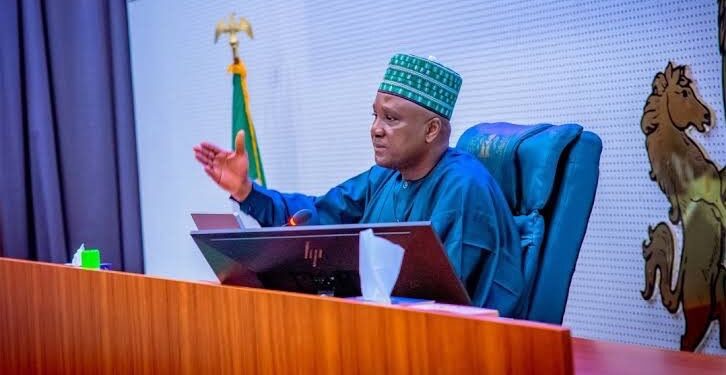Abbas made this known in his keynote address at a national legislative Forum on human rights.
The forum was organised by the Commission with support from Rule of Law and Anti-corruption (RoLAC) and others as part of activities marking international human rights week.
Represented by the Majority Leader of the House, Prof Julius Ihonbvere, Abbas said the theme for this year’s international human rights day was historical.
He said that the theme for this year’s celebration, is “Our Rights, Our Future, Right Now,” was both timely and compelling.
” It serves as a clarion call for immediate and sustained action to advance human rights in Nigeria and underscores the critical role of rights in shaping a secure and prosperous future for all citizens.
“This theme challenges us to move beyond aspirations and commit to practical steps that translate the promise of rights into tangible improvements in the lives of Nigerians” he said.
The speaker said Nigeria’s constitutional guarantees and international commitments establish a strong framework for protecting the dignity and freedoms of all citizens.
However, he said translating these commitments into reality requires addressing issues such as gender-based violence, police accountability, discrimination, and threats to freedom of expression.
“These challenges, exacerbated by insecurity, systemic poverty, and weak enforcement mechanisms, present opportunities for growth and reform.
” We must strengthen our institutions, enhance enforcement capabilities, and foster trust between the government and the people” he said.
” By doing so, we can build a nation where human rights are respected and protected as the bedrock of our democracy” he said
The 9th Assembly according to the speaker, also laid an important foundation for the promotion of human rights through the enactment of the Police Act 2020.
This landmark legislation requires the Nigerian Police Force to uphold and protect fundamental rights as enshrined in our Constitution.
He added the African Charter on Human and Peoples’ Rights, and other international instruments.
”This measure underscores our collective resolve to embed respect for human rights into the operational framework of law enforcement agencies.
“Building on these achievements, the 10th House of Representatives is working to further institutionalise accountability within the security sector” he said.
He further said that a notable effort is the consideration of amendments to the Armed Forces Act to establish a Human Rights Ombudsman.
This initiative according to the speaker, seeks to create a structured mechanism for addressing human rights violations within the military,.
He said that ensuring justice and accountability remains central to the operations of the armed forces.
The NHRC, he said, remains at the forefront of human rights advocacy in Nigeria.
However, he said, its effectiveness is hindered by resource limitations, including the need for independently owned state offices, expanded headquarters facilities, and operational vehicles across all states and the FCT.
He added that the National Assembly is committed to providing the necessary support to ensure that the Commission can meet the growing expectations of Nigerians.
“Education is a powerful tool for fostering a culture of respect for dignity and equality.
” We must integrate human rights education into school curricula and public enlightenment campaigns to equip citizens with an understanding of their rights and responsibilities.
” This will not only empower individuals but also foster empathy, civic responsibility, and social cohesion.
“Such initiatives are critical for rebuilding trust between citizens and the government.
” When institutions are strong, and citizens are well-informed, the prevalence of human rights abuses diminishes, creating a stable and harmonious society” he said. (NAN)











